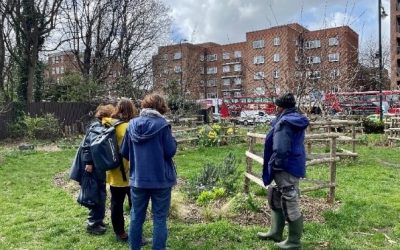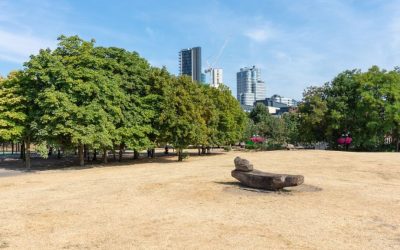overview
- A chance to join a growing network of design thinkers around the world working within a series of hubs operating within communities and enterprises
- Discover how to use holistic approaches to unravel complex situations involving multiple stakeholders
- A low-residency programme which enables students to develop their practice while continuing to work, allowing them to immediately implement their learning
start date: September
Term dates: 2022-23
Autumn Term: Monday 12 September – Friday 16 December 2022
Winter Term: Monday 9 January – Friday 31 March 2023
Spring and Summer Term: Monday 24 April – Friday 30 June 2023
Deadline for Major Project/Dissertation: Tuesday 15 August 2023
Onsite Teaching Weeks
12–16 September 2022: Welcome Week (at Schumacher College)
19-30 September 2022: Module 1
7–18 November 2022: Module 2
9–20 January 2023: Module 3
27 Feb -10 March 2023: Module 4
Term dates: 2023-24
Term Dates
Autumn Term: Monday 11 September – Friday 15 December 2023
Winter Term: Monday 8 January – Friday 5 April 2024
Spring Term: Monday 29 April – Friday 5 July 2024
Dissertation Deadline: 13 August 2024
Module dates
Module 1
Welcome week: Monday 11th – Friday 15th September
Residential weeks: Monday 18th September – Friday 29th September
Online weeks: Monday 2nd October – Friday 21st October
Reading week: Monday 23rd- Friday 27th October
Assignment deadline: Tuesday 31st October
Module 2
Residential weeks: Monday 6th November – Friday 17th November
Online weeks: Monday 20th November – Friday 8th December
Reading week: Monday 11th – Friday 15th December
Assignment deadline: Tuesday 19th December
Module 3
Residential weeks: Monday 8th January – Friday 19th January
Online weeks: Monday 22nd January – Friday 9th February
Reading week: Monday 12th – Friday 16th February
Assignment deadline: Tuesday 20th February
Module 4
Residential weeks: Monday 26th February – Friday 8th March
Online weeks: Monday 11th March – Thursday 28th March
Reading week: Monday 2nd April – Friday 5th April
Assignment deadline: Thursday 11th April
Learning pathways
Some qualifications are offered part-time – these are indicated below.
To get the most out of their course and of being part of our learning community, many students choose a fully immersive experience for the residential taught periods of their course, staying on our stunning 1,200 campus on the banks of the River Dart with full board accommodation.
MAster's (ft/pt; 180 credits)
Ecological Design Thinking is a low-residency programme with 4 x 30-credit modules and 1 x 60-credit Dissertation or Major Project module.
The course is available full time over one year or part time over two years.
Part-time students would gain their 180 MA credits by completing modules 1, 2 and 3 (90 credits), alongside full-time students in Academic Year 1. They will join the cohort in the following year to complete modules 4 (30 credits) and 5 (60 credits) in Academic year 2.
Postgraduate Diploma (ft/pt; 120 credits)
A full-time (1 year) or part-time programme (2 years) with 4 x 30 credit modules. PGDip students would gain 120 credits by completing modules 1, 2, 3,4 alongside MA students.
Each of the four (30 credit) modules will include:
- 1 or 2-week intensive/residential element at Schumacher College followed by 4 weeks supported e-learning.
- Students can take the course full-time over one year, or part-time over two years.
Part-time students would gain their 120 PG Dip credits by completing the core theoretic modules 1 and 2 alongside full-time students in Academic Year 1. They will join the cohort in the following year to complete the core studio modules 3 and 4 in Academic Year 2.
Postgraduate Certificate (60 credits)
A full-time programme with 2 x 30 credit modules. PGCert students would gain 60 Credits by completing modules 1 and 2 alongside full-time students.
It is proposed that each of the two (30 credit) modules will include:
- 1 or 2-week intensive/residential element at Schumacher College followed by,
- 4 weeks supported low res learning.
First module only (30 credits)
To apply for the accredited single module option, apply in the usual way, selecting the ‘Module One’ option during the application process.
SHORT COURSE (UNACCREDITED)
course content
We believe in a future where the things that we design no longer need to be detrimental to the wellbeing of our planet.
We believe in a future that pioneers ecological possibilities that redress social, environmental and economic imbalance.
We believe in a future that encourages creativity to explore integrated solutions that are beneficial to all-of-life.
This programme offers a dynamic new way of engaging with the challenging situations we face socially, economically and environmentally.
We show you how to use ecological design thinking to unravel complex situations in the work-place, in your community or within organisations. You will learn the practical skills and knowledge to show you how to achieve co-created solutions, which engage everyone and foster resilience in individuals and communities.
Schumacher College, along with college founder Satish Kumar, were awarded the RSA 2023 Bicentenary Medal in recognition of their “outstanding, regenerative and impactful contribution, through design practice, that is enabling people, places and planet to flourish in harmony.”
Ecological Design Thinking is a growing discipline around the world as its techniques are increasingly adopted in the fields of design, education and business as well as within leadership, management and consultancy.
The Ecological Design Thinking programme is transdisciplinary, insightful and universal in its application. The low-residency model allows for online study with four periods of two-week residency enabling professionals to continue their practice while studying.
It brings together theoretical and practical discourses on ecologically inspired design, with the latest developments in anthropology, psychology and socio-political economics. It aims to provide a tool-kit for change makers at the forefront of our transition to sustainable societies.
Skills
On this course you will:
- Explore practical implications of eco-literacy for personal transformation and collective actions
- Identify, frame and communicate systemic socio-ecological problems using innovative approaches, transdisciplinary frameworks and participatory practices
- Co- design and facilitate bottom-up approaches to social change driven by ecological principles
- Work in interdisciplinary teams and develop interpersonal skills to proactively formulate solutions to complex problems
- Develop skills to evaluate, contrast, synthesise and work creatively with conflicting ideas and uncertainty
- Use visual, verbal and written communications and appropriate media to present complex ideas effectively
programme structure & modules
This MA programme consist of 5 modules (4 taught and 1 dissertation module). The first 2 weeks of each taught module are timetabled teaching periods, where you must live on site (or nearby) and participate in the learning community. So there are 4 two-week periods, spread across 7 months.
The remaining 4 months are the dissertation research and writing period. You may choose to return home for the duration of the dissertation. If you are an international student you will no longer be sponsored by us for your Tier 4 visa.
Outside of the two-week periods, international students (only) may request accommodation and full board onsite at Dartington for terms 1 and 2: this would require you to participate in the learning community activities. Alternatively you can opt to live nearby or anywhere in the UK and travel to and from Dartington when required.
We have a limited number of residential places available for international students. Apply as early as possible and select the accommodation option on the application form.
Modules
Module One: Design and Ecology (30 credits)
Ecological Design Thinking seeks to design socio-cultural systems which are aligned and harmonious with ecological systems. As a foundation module, ‘Design and Ecology’ aims to explore the behaviour of ecosystems and cultivate ecological literacy through intellectual and embodied processes. In this module students evaluate their own ecological philosophy and explore principles from ecology and Gaia theory, dynamic systems thinking, planetary boundaries, complexity theory, regenerative design and biomimicry.
Module Two: Design and Society (30 credits)
To move towards regenerative societies, social and cultural systems need to be designed in partnership with ecological systems. The ‘Design and Society’ module integrates design thinking approaches with ecological processes and principles. In this module students explore and critically assess social behaviours and values manifested in both conventional and alternative socio-economics and political systems. They navigate complexity in the social context and begin to develop participatory methodologies and modes of intervention in social systems which would bring them into partnership with ecological systems.
Module Three: Design and Place (30 credits)
Stories of the past are integrated in the ecology of place. Ecological Design Thinking seeks to align itself to the evolutionary narrative of the land and be inspired by the wisdom of places and people. This module examines the principles and processes of ecological design thinking in the context of a given place. Students develop project briefs by pursuing investigations that include the study of past and present practices and identification of issues and opportunities in a particular place. This module applies the knowledge from the ‘Design and Ecology’ and ‘Design and Society’ modules to the design context.
Module Four: Design in Practice (30 credits)
Ecological design is the practice of navigating through complex socio-ecological dynamics. Drawing from the theoretical and experiential knowledge of the previous modules, this module further explores and develops the principles, processes and practices of ecological design thinking in the context of a placements or research project. Students explore the challenges and dynamics of working on live projects. They critically examine the ecological, social, economic and cultural context of the given project and systematically test ecological design solutions through a range of methods.
Dissertation or Major Project (60 credits)
This module enables students to pursue a project or an academic essay of their own interest in the context of Ecological Design Thinking. They are required to conduct autonomous inquiries and contribute to the further evolution of theory and practice in the field. Assessments are made of students’ ability to apply knowledge gained over the course of the taught elements of the Masters in innovative and practical ways.
Examples of dissertation topics and final projects have included:
- Being reclaimed by the land: The role of landscape in transformative learning
- Centring the Ecological Imagination: A catalyst for change
- Weaving regenerative fabrics: An exploration of the community-led ecological textile industry
- Designing through making: A theory and practice for reimagining the way we design
- Water Tracing: An ecological design art practice
- Story of Change: A quest for regenerative culture through storytelling
- Weaving memory: threading the ecological self into social justice
entry requirements
Qualification(s) required for entry to the MA
BA/BSc (Honours) Degree
A first degree in design related subjects, or social or natural sciences.
Other non-standard awards or experience
A willingness to play a part in the interrogating and co-creating of Ecological Design Thinking as an evolving discipline. Candidates will be considered with prior credited learning and prior experiences subject to interview.*
Interview requirements
All applicants are required to attend an interview, either at the College or online. During the interview we will look for: evidence of intellectual clarity during interview; a clearly formulated purpose for taking the course; focused interests and a clear understanding of the ethos and philosophy of the College; readiness and ability to live and work in a communal setting.
*For further information please contact our admissions team at admissions@dartington.org.
Lead image credit: Sam Chevallier
fees
For full details on our fees, plus information about scholarships, student loans and bursaries, click here.
This programme is eligible for Chevening Scholarships for international students. Find out more via this link.
staff

Dr Mona Nasseri
mona.nasseri@schumachercollege.org.uk
Mona is Head of Research at Schumacher College and Programme Lead for MA Ecological Design Thinking. She joined Schumacher College in 2014 and been involved in the delivery and development of the programme since its inception.
Read More

Professor Roberto Fraquelli
roberto.fraquelli@schumachercollege.org.uk
Roberto is Senior Lecturer for MA Ecological Design Thinking. He is interested in Holistic Design and the dilemma many designers face between the pressures of economic growth and an empathy with all living systems.
guest lecturers

Inez Aponte

Ruth Ben-Tovim

Isabel Carlisle

Daniel Christian Wahl

John Thackara
John is a writer, advisor and event producer.
Read More
David W. Orr
David is the Paul Sears Distinguished Professor of Environmental Studies and Politics and Chair of the Environmental Studies Program at Oberlin College.
Read Morecareers
Graduates leave to work in:
- Design and Architecture: building and development with regard to all systems of life
- Town Planning: how to create an effective multi-functional community space
- NGOs: especially those tackling climate emergency
- Permaculture: agroforestry, land management and community
- Business: making systems more ecologically sustainable
- Education: teaching in multi-disciplinary disciplines
- This programme can be taken full-time or part-time with a low-residency or online only pathway. PGCert (2 modules) and PGDip (4 modules) study options are also available.
Julian Lang
Institute for Intuitive Technology and Architecture
Read MoreFelipe Collazo
Listen to our interview with Felipe:
live chats & open days
latest news & blogs
The power of learning through participation in practice
A work placement at a social enterprise has helped ecological design thinking student Sarah Hawkins to understand the importance of working collaboratively.
Introducing Emma Kidd
We are delighted to welcome Emma Kidd as lecturer on our Ecological Design Thinking programme.
Adapting to heat waves with resilience isn’t enough
With record temperatures posted in the UK already this summer, we consider what an ecological design thinking approach can bring to the table in our collective efforts to respond and adapt to more frequent heatwaves.The recent heat wave has led to many commentators...




